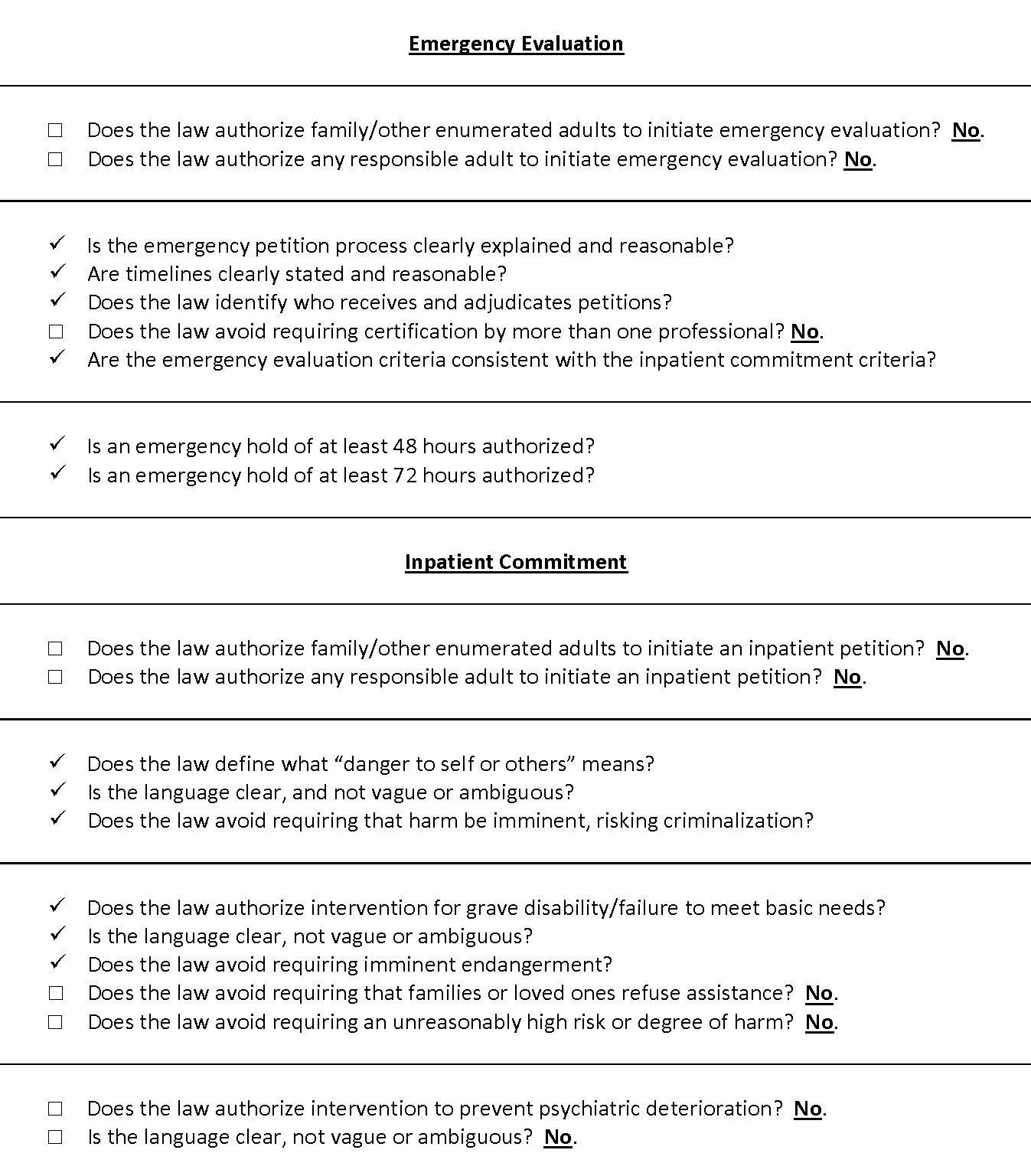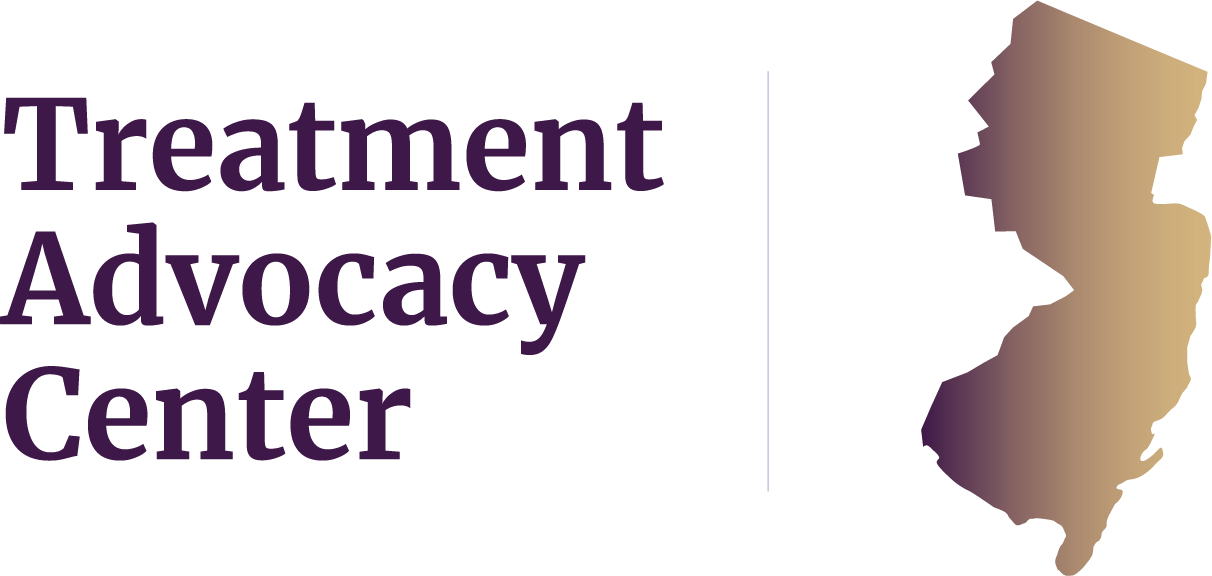Family Resources in Resources in New Jersey
- New Jersey Division of Mental Health and Addiction Services (nj.gov) Resources and contacts
- Directory of Mental Health Services (state.nj.us) Providers listed by county and program type
- Serious Mental Illness: Goals of Care Coalition of New Jersey (goalsofcare.org) SMI resources for individuals and families and help with long-term care planning
- NJ 211 (nj211.org) Online search tool for mental health resources
- Adult Guardianship | NJ Courts (njcourts.gov) Information about options and process
- NAMI New Jersey (naminj.org) Support groups, training, information
- Disability Rights New Jersey (disabilityrightsnj.org) Protection and advocacy for individuals with disabilities
- Department of Human Services | Mental Health Housing (state.nj.us) Residential and supportive housing options
- Offender locator (20.state.nj.us) Search for someone in prison by SBI number, name, and additional information
- New Jersey State Bar Association (njsba.com) Legal assistance
How many people in New Jersey have SMI?
individuals with severe mental illness.
individuals with SMI who receive treatment in a given year.
of the adult population is estimated living with a SMI in the United States.
State psychiatric hospital beds in New Jersey
2023 total beds: 1,555
- Civil beds: 1,105
- Forensic beds: 450
2023 beds per 100,000 people: 16.8
Click here for more information about state psychiatric hospital beds in New Jersey.
A minimum of 50 beds per 100,000 people is considered necessary to provide minimally adequate treatment for individuals with severe mental illness. New Jersey fails to meet this minimum standard.
For Additional Information
Data is a powerful tool to advocate for change. Curious about a specific data point in your state? Reach out to us at ORPA@treatmentadvocacycenter.org
Fast Facts on SMI in New Jersey
Deinstitutionalization, outdated treatment laws, discriminatory Medicaid funding practices, and the prolonged failure by states to fund their mental health systems drive those in need of care into the criminal justice and corrections systems.
19%
4,473
1,555
3 to 1
2021 New Jersey State Mental Health Agency's expenditures
Every state receives block grant funding from the federal government to provide mental health services to their community. Below is some information about how these dollars are spent and compares to other state spending.
$1,800,210,552
22%
$5,015
2.3%
New Jersey's Treatment Laws
N.J. STAT. ANN. § 30:4-27.6. A State or local law enforcement officer shall take custody of a person and take the person immediately and directly to a screening service if: a. On the basis of personal observation, the law enforcement officer has reasonable cause to believe that the person is in need of involuntary commitment to treatment; b. A mental health screener has certified on a form prescribed by the division that based on a screening outreach visit the person is in need of involuntary commitment to treatment and has requested the person be taken to the screening service for a complete assessment; c. The court orders that a person subject to an order of conditional discharge … who has failed to follow the conditions of the discharge be taken to a screening service for an assessment; or d. An outpatient treatment provider has certified on a form prescribed by the division that the provider has reasonable cause to believe the person is in need of evaluation for commitment to treatment.
N.J. STAT. ANN. § 30:4-27.10 a. (1) A short-term care or psychiatric facility or a special psychiatric hospital shall initiate court proceedings for involuntary commitment to inpatient or outpatient treatment by submitting to the court a clinical certificate … and the screening certificate which authorized admission of the patient to the facility[.] (2) A screening service or outpatient treatment provider shall initiate court proceedings for commitment to outpatient treatment by submitting to the court a clinical certificate… and the screening certificate … which authorized assignment of the patient to outpatient treatment with the outpatient treatment provider[.] b. Court proceedings for the involuntary commitment to treatment of any person not referred by a screening service may be initiated by the submission to the court of two clinical certificates, at least one of which is prepared by a psychiatrist. The person shall not be involuntarily committed before the court issues a temporary court order. c. A court proceeding for involuntary commitment to treatment of an inmate who is scheduled for release upon expiration of a maximum term of incarceration shall be initiated by the Attorney General or county prosecutor by submission to the court of two clinical certificates[.] d. The Attorney General, in exercise of the State's authority as parens patriae, may initiate a court proceeding for the involuntary commitment to treatment of any person in accordance with the procedures set forth[.] N.J. STAT. ANN. § 30:4-27.2(m). "In need of involuntary commitment" or "in need of involuntary commitment to treatment" means that an adult with mental illness, whose mental illness causes the person to be dangerous to self or dangerous to others or property and who is unwilling to accept appropriate treatment voluntarily after it has been offered, needs outpatient treatment or inpatient care at a short-term care or psychiatric facility or special psychiatric hospital because other services are not appropriate or available to meet the person's mental health care needs. N.J. STAT. ANN. § 30:4-27.2(r). "Mental illness" means a current, substantial disturbance of thought, mood, perception or orientation which significantly impairs judgment, capacity to control behavior or capacity to recognize reality, but does not include simple alcohol intoxication, transitory reaction to drug ingestion, organic brain syndrome or developmental disability unless it results in the severity of impairment described herein. The term mental illness is not limited to "psychosis" or "active psychosis," but shall include all conditions that result in the severity of impairment described herein. N.J. STAT. ANN. § 30:4-27.2(h). "Dangerous to self" means that by reason of mental illness the person has threatened or attempted suicide or serious bodily harm, or has behaved in such a manner as to indicate that the person is unable to satisfy his need for nourishment, essential medical care or shelter, so that it is probable that substantial bodily injury, serious physical harm or death will result within the reasonably foreseeable future; however, no person shall be deemed to be unable to satisfy his need for nourishment, essential medical care or shelter if he is able to satisfy such needs with the supervision and assistance of others who are willing and available. This determination shall take into account a person's history, recent behavior and any recent act, threat or serious psychiatric deterioration. N.J. STAT. ANN. § 30:4-27.2(i) "Dangerous to others or property" means that by reason of mental illness there is a substantial likelihood that the person will inflict serious bodily harm upon another person or cause serious property damage within the reasonably foreseeable future. This determination shall take into account a person's history, recent behavior and any recent act, threat, or serious psychiatric deterioration.


Recommended updates to treatment laws
- 1
Amend N.J. Stat. § 30:4-27.6 to authorize citizen right of petition for at least enumerated citizens, preferably any responsible adult, for emergency evaluation
- 2
Amend N.J. Stat. §§ 30:4-27.6 and 30:4-27.10 to remove requirement for certification by two professionals for emergency evaluation
- 3
Amend N.J. Stat. § 30:4-27.6(b) to authorize citizen right of petition for at least enumerated citizens, preferably any responsible adult, for inpatient commitment
- 4
Amend N.J. Stat. § 30:4-27.2(h) to remove requirement that family/friends refuse assistance and requirement of probability that substantial bodily injury, serious physical harm or death will result to meet criteria for grave disability
- 5
Add psychiatric deterioration criteria or amend grave disability criteria to include it
- 6
Adopt express procedures for the court to monitor uncontested AOT orders entered into voluntarily to give the benefit of the black robe effect to all enrollees
